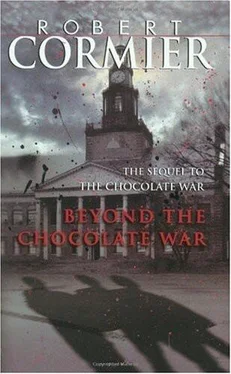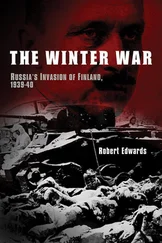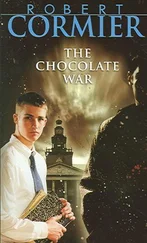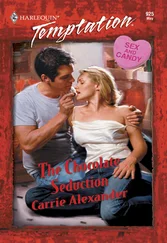Morton pulled away from Archie and he let her go, immersed in his own thoughts and the pursuit of Carter's personality, probing for weaknesses. Some of Carter's weaknesses were not hidden at all. For instance, the pride he took in his athletic accomplishments, the way he checked the trophy case fifty times a day, the way he strutted around the school, his swinging shoulders and athletic gait an advertisement for his jock image. Honor and pride, the twin facets of Carter's personality, and also the chinks in his armor. The problem, of course, was to exploit those chinks.
He reached out and touched Morton, who was staring into the 'darkness, watching the car headlights splashing and clashing down on the highway. She hated the part of herself that always responded to Archie Costello. She was pretty and popular and intelligent. Had not missed a prom or Saturday-night dance since the seventh grade. Independent and self-possessed. But had this weakness for Archie, this response to his demands, a certain excitement springing to life when she heard his voice on the telephone. So maybe he was right, after all, when he said everybody had a touch of something rotten in their lives. Archie Costello was hers. She would never accompany him to a prom {but then, he had never asked her to one) and yet could not deny the pleasure, however guilty, she kept discovering and rediscovering whenever they were together. She did not let herself go like that with anyone else. And now she responded again as he caressed her.
She yielded. . and for the next few moments Archie Costello and Jill Morton knew only the small sensual world of an ancient Chevy until the quick spurt, the sweet seizure, and an eruption of beauty and fury that left both of them shaken with delight, a moment they abandoned so swiftly that they barely had a memory of its existence a minute later.
They sat awhile in a drifting lassitude, all spent. Archie let himself go in the drift, enjoying these few moments of silence because he knew that eventually Morton would begin to talk. She always began to talk afterward. And lie hid his irritation and impatience, knowing that she had a need for talking that was as strong as her need for something else had been a few moments earlier.
"What's bothering you about this all-American hero?" she asked lazily.
Archie recoiled, drawing away. "Nothing's bothering me," he said.
"Then why all that talk about him?"
Archie realized anew why he always kept himself distant from people. Let them approach a bit and they come too close, take too many liberties.
"Forget it," he said, turning the key in the ignition, the engine leaping to life.
"Hey, don't get mad," she said. "You brought up the subject, not me." She reached for the key and turned off the engine.
Archie did not answer, knew that Morton was right. Carter was bothering him. And he knew why. He needed to take special action against Carter, not some minor assignment that would be temporary or fleeting. Carter was a special case. He would begin by attacking that special honor of his, but must end elsewhere, something longer lasting.
Morton intruded on his thoughts again, Morton and her knowing, expert touch, hands busy, mouth open, tongue like a small, sweet, darting snake. And Archie let himself be drawn into her orbit, forgetting Carter and everything else, giving himself over to Morton, carried on waves of sensuality that he knew would erupt into a deep dark flower of ecstasy that was almost, almost but never, never quite happiness.
He completed dialing the Goober's number on the third try, having missed the first two times, his finger slipping from the rounded slot — a Freudian slip of the finger? he wondered, smiling grimly, but glad that he could make a bit of a joke at a moment like this — and then heard the phone ringing at the other end.
Bracing himself, planting his feet solidly on the floor, he felt as though he were about to face hurricane winds that would sweep him across the room. Crazy. He was merely making a phone call to his old buddy.
Three rings, four, the sound like an invisible strand of rope between this room where he stood and the living room at Goober's house. Where, apparently, no one was present to answer the phone.
Seven. . eight.
Good, he thought, nobody home, I've done my part; some other time. Relieved, about to hang up, he heard someone say "Hello." Out of breath, exhaling the word. And again: "Hello."
Jerry gulped Where do I begin?
"Hello?" The voice again, still out of breath, a question mark at the end of the word and a hint now of annoyance.
Jerry rushed in:
"Hello, Goober? How are you? This is Jerry Renault, just thought I'd call. . " Too much too fast, the words running together. "Been out running?" Cripes. Living in silence all this time and now I can't shut up.
"That really you, Jerry?" Goober asked, taking a deep breath, probably just ending a run, and Jerry envied him, wanted to run, jump, careen around in the spring air, realized how suffocating and deadly dull the apartment had been since his return.
"It's really me," Jerry said, wanting to sound normal, like the Jerry Renault that Goober knew and remembered.
"Great to hear your voice," the Goober said, but a bit guarded, the words fine and normal but his voice tentative.
Let's get this all out of the way as soon as possible, Jerry thought. And plunged again: Give me the ball and the hell with the signals.
"Look, Goob. Can I say something? A couple of things, in fact? First, I'm sorry about the other day. When you came here. I wasn't ready, I guess. I was really glad to see you but not ready for other things. I mean, not ready for Monument. I must have looked like a nut. . "
Goober's laugh was easy, almost grateful. "Well, it wasn't your everyday kind of hello-how-are-you. But you sound okay now, Jerry." And, after a slight pause: "Are you?"
"I think so. Yes." Having to make it clear: "I'm fine. Really."
"Great. And Jerry, let me say something too, okay? Something I've got to say before anything else—"
"Look, Goober, I know what you want to say. . and you don't have to. You're my friend."
"But I've got to say ft, Jerry, and you have to listen and then you have to make a decision. Don't say anything yet. Let me. Let me tell you that I know that I betrayed you last fall. Stayed home as if I was sick when you were going through hell because of the chocolates, that beating from Janza. ."
"But you were there, Goob. I saw you. You helped me. . " He almost said: You held me in your arms when I was all broken inside and out.
"But I got there too late, Jerry. Stayed home until the last minute. And was too late to help you. . Okay, I've said it. It had to be said. And I don't blame you if you hate me."
"Cripes, Goober, I don't hate you. You're my friend."
"I didn't act like a friend that night. . "
"Goober, Goober. ." Admonishing gently, as if Goober were a child to be soothed and reassured.
"Do I get another chance?"
"You don't need another chance, Goob. You're my friend — so what's all this about another chance?"
"I'll never let you down again, Jerry."
"Hey, look, Goob. Will you do me a big favor? As a 'friend forever?"
"Sure." The Goober's voice was easier now, lighter. "Name it — and consider it done."
"Okay. The favor is this: Don't talk about that night anymore, don't talk about letting me down or anything like that That was last fall — this is now. Let's forget it ever happened."
"There's one thing I can't forget. What you told me that night, Jerry. Because it's the truth. It's the way I live my life now. You said to play ball, play the game, sell the chocolates or whatever they want you to sell. That's what I'm doing, Jerry. What I'm always going to do. ."
The words made Jerry uneasy. It was one thing to believe in them yourself: it was another to know that someone else, a friend, believed in them, too. Changing his life because of words you spoke. Jerry felt engulfed by sadness at the words, although he knew them to be true.
Читать дальше











